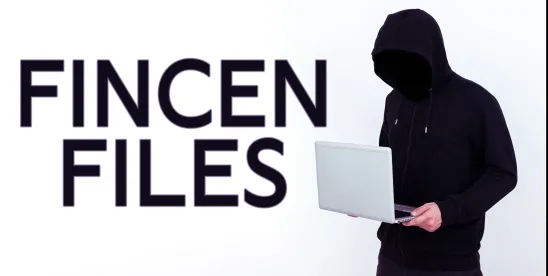The Financial Crimes Enforcement Network (FinCEN) recently updated its Frequently Asked Questions (FAQs) regarding the Beneficial Ownership Information (BOI) Reporting Rule. The October 3, 2024 FAQ updates provided crucial clarifications on several aspects of the FinCEN rules. This summary highlights certain of the new and updated FAQs that we think will most greatly impact parties as they assess their filing obligations.
Access to Information (A.3 and A.6)
In updated FAQ A.3, FinCEN clarifies who may access filed information, including:
- federal governmental agencies engaged in national security, intelligence or law enforcement;
- officials at the Department of the Treasury;
- state, local and tribal law enforcement agencies with court authorization;
- foreign law enforcement and other parties by request through a U.S. federal agency for authorized activities related to national security, intelligence and law enforcement;
- financial institutions with due diligence obligations under applicable law; and
- federal regulators or other appropriate regulatory agencies that supervise or assess financial institutions.
In addition, in new FAQ A.6, FinCEN clarifies that filed beneficial ownership information reported to FinCEN is exempt from disclosure under the Freedom of Information Act (FOIA).
Conversion and New Reporting Requirements (C.18)
New FAQ C.18 addresses whether converting from one entity type to another (e.g., an LLC to a corporation) creates a new domestic reporting company requiring an initial BOI report. FinCEN clarified that the question of whether a conversion creates a “new” domestic reporting company depends on whether or not the applicable state or tribal law considers the conversion as creating a new entity. If a new entity is, in fact, created, that entity must file an initial BOI report. FinCEN further clarified that even if the conversion does not create a new entity, the converted entity may need to submit an updated BOI report to reflect changed information (e.g., the legal name or jurisdiction of formation). For example, if “Company, Inc.” converted to an LLC (but applicable state or tribal law considers the new entity to be a continuation of the old entity), its name may have changed to “Company, LLC,” and thus it may be required to file an updated BOI report because the name change is a change to required information previously submitted to FinCEN. Similarly, if a reporting company changes its jurisdiction of formation (for example, by ceasing to be a California corporation and becoming instead a Texas corporation), it must submit an updated BOI report to FinCEN.
This FAQ highlights the importance of reviewing state or tribal law and promptly updating BOI reports after conversions.
Defining Beneficial Owners and Substantial Control (D.1)
Two new subparts to FAQ D.1 clarify that (a) an individual can be a beneficial owner through substantial control, ownership or both, (b) there is no maximum number of beneficial owners who must be reported and (c) every reporting company is expected to have at least one beneficial owner due to substantial control.
Beneficial Ownership in Community Property States (D.18)
New FAQ D.18 addresses beneficial ownership in community property states. It clarifies that if state law dictates that both spouses own or control at least 25% of a reporting company’s equity interests, then both should be reported as beneficial owners unless an exception applies. This FAQ highlights the need to consider state-specific marital property laws when determining beneficial ownership.
Pooled Investment Vehicles (L.10)
New FAQ L.10 addresses the pooled investment vehicle (PIV) exemption, and whether a company would qualify for the PIV exemption if it is operated or advised by certain specific types of exempt reporting adviser (ERA). FinCEN notes that the PIV exemption from the beneficial ownership information reporting requirements only applies to PIVs operated or advised by certain types of entities, including (a) an investment adviser registered with the Securities and Exchange Commission (SEC) under the Investment Company Act of 1940 or the Investment Advisers Act of 1940, and (b) an ERA relying on the “venture capital fund adviser” exemption. The FAQ clarifies that PIVs managed by other types of ERAs (or advisers registered with states) are not exempt from the BOI reporting requirements.
Large Operating Company Exemption and Personal Residences (L.11)
New FAQ L.11 addresses the large operating company exemption for companies run from personal residences, clarifying that to qualify for such exemption, a company operating from a personal residence must itself rent or own the space used for business and that this space must be physically distinct from any other unaffiliated entity’s place of business. The company also must meet the other requirements for the exemption, such as having (a) more than 20 full-time employees and (b) over $5 million in gross receipts or sales in the prior year as reflected on the company’s tax return.
Subsidiary Exemption Clarifications
Updated FAQ L.6 clarifies the criteria necessary for reliance on the subsidiary exemption. In a prior version of FAQ L.6, FinCEN provided that a reporting company only qualifies for the subsidiary exemption if its ownership interests are 100% owned or controlled by one or more exempt entities (such that partial control by an exempt entity, with the remaining interests controlled by a non-exempt entity or an individual, would not suffice for purposes of the exemption).
The updated FAQ notes that the subsidiary exemption applies even if the subsidiary’s parent entities are exempt from the BOI reporting requirements for different reasons (e.g., one parent is an exempt large operating company and the other is an exempt public utility); provided that all of the subsidiary’s ownership interests are owned or controlled by specified exempt entities. Note that not all exemption types are listed (as eligible parents). The updated FAQ also clarifies that the exempt parent entities need not be affiliated with each other in order to qualify for the exemption.
Conclusion
The October 3, 2024 FinCEN updates provide valuable guidance on beneficial ownership reporting. Businesses and legal professionals should carefully review these FAQs and ensure that their compliance practices align with the latest FinCEN interpretations. Staying informed about these updates is crucial for navigating the evolving landscape of FinCEN reporting and minimizing potential reporting errors.





 />i
/>i

